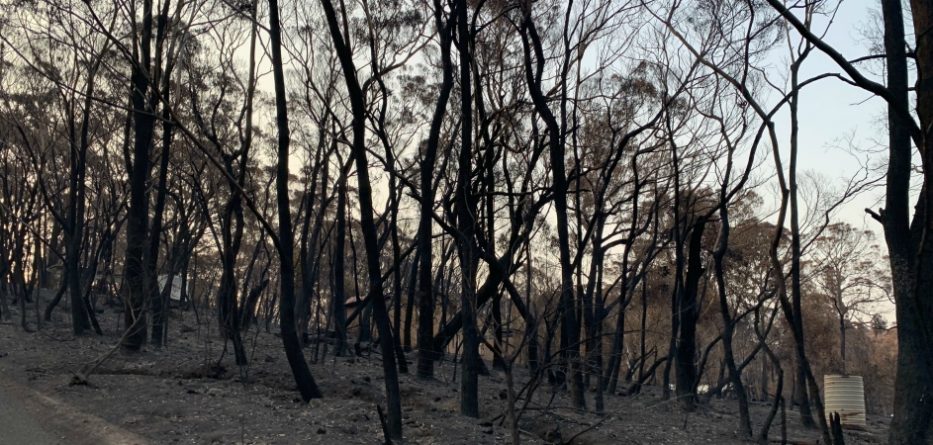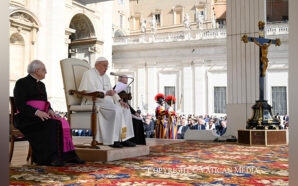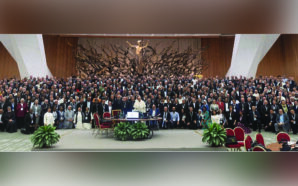Climate Council CEO Amanda McKnight interviewed Greg Mullins, former NSW Fire Commissioner, on 20 January 2020, on the ongoing bushfire emergencies. About two hundred people took part in the Webinar, many submitting their questions beforehand. The Council was founded in 2013 as an independent, not-for-profit organisation, to give authoritative and independent information on climate change.
Greg Mullins
I begin with the conclusion of his talk. Greg said that wildfires are now the new normal for Australia, starting from August each year. He bluntly suggested that bushfire emergencies are a result of changed weather patterns and not of fuel loads or other reasons.
The weather trend emerging is for less winter rains and more frequent droughts, more storms and increased lightning strikes. This establishes a new fire regime. On average, emergency level bushfire events that occurred at intervals of 21 years a few decades ago began to occur every 13 years and now at 6 year intervals. Thirty one fire chiefs from across Australia confirm this trend.
The chiefs believe they have a moral duty to speak out and the government has a moral duty to care for the safety of its citizens. But government responses have often been ‘too little and too late’.
Mullins said, don’t be fooled by those who say it is merely an issue of supplying more fire-fighting equipment or the result of not enough fuel hazard reduction programmes. Some even want to blame arsonists but they account for less than ten percent of ignitions.
Wild large-scale bushfires are increasingly driven by climate change. This is the reality. It has been confirmed in the evolving recommendations from the bushfire Royal Commissions in 1939 and 2009. Their main recommendation in a bushfire emergency moved from ‘stay and fight’ to ‘go’.
All southern Australian states have had inquiries into their bushfire policies. Queensland has joined them by declaring itself a ‘bushfire-State’. While each state is responsible for fighting bushfires, the severity of wildfire impacts demands added Commonwealth Government responsibility. All levels of government need to coordinate to protect Australian citizens.
Among their recommendations, fire chiefs have presented plans to the Commonwealth Government about involving the armed forces in logistics planning and specialised civil fire protection roles. But, discussions have been put on the long finger. A recommendation about buying more fire-fighting aircrafts has suffered the same result.
The design and type of house construction and where it is safe to build in fire-prone areas need more coordination. Replacing houses that have been burnt in the same locale is another area where the Commonwealth has a role to play.
Research on bushfires is needed. It is important to take on millennia of Indigenous knowledge about how fire regimes work. Indigenous burning practices are based on a long term view. Aboriginal people read the flora and fauna of the land as signs to predict climate variations. They then use low intensity burns promoting diverse regrowth that heals the country.
Questions
Amanda formulated a range of questions for Greg gathered from submissions made beforehand by participants in the webinar.
‘Will bushfire greenhouse gasses alter Australia’s IPCC [Intergovernmental Panel on Climate Change] emission targets?’ – This is still being debated.
‘Please comment on climate politics.’ – There has been much public and media criticism of Commonwealth polices. However, some politicians, such as in NSW, are supporting voters and businesses who are moving on such things as solar energy production.
‘What are the bushfire impacts on drinking water?’ – Storms will wash ash into storage dams in volumes that may clog filters. Ash will contribute to algae blooms as a result of raised nutrient levels.
‘Can we adapt to the new bushfire regime and mitigate impacts?’ – No. We are entering a new era where words like adapt and resilience are meaningless. Even the vast fire-fighting resources which California can throw at wildfires are being overwhelmed. Rebuilding things as they were is not an option. Putting some Australian power lines underground becomes an imperative.
As temperatures rise, fires will become more frequent in the same place, a new situation. Land around the Lithgow coal mines in the Blue Mountains burnt again this year after a mere six years. If average temperatures rise by three to four degree, flora dies off and land moves from woodland to grassland and lastly to desert.
‘Are the bushfires a wakeup call?’ – Yes. But it will take organised effort for change such as making submissions, talking to the press, lobbying. It is a fight for the planet. Some listeners were shocked by the revelation. There is a moral obligation to look after this and future generations.
Greg Mullins concluded with a fourfold appeal: directly support the relief work of major charities; join or support volunteer firefighter units; support the work of local councils; send letters of concern to your local politician. Greg announced that a group of professionals will soon hold a Summit to cooperate and coordinate bushfire related action.
Faith Communities
In 1988, the Columban Society officially made hearing ‘the twin cry of the poor and the earth’ a constituent part of its mission works. In 2015, Pope Francis declared work for ‘integral ecology’ a faith essential. His encyclical requires faith communities to dialogue with the spheres of science, business and politics in ways that lead to cooperative action in care for earth as our common home.
In late 2019, the Australian Catholic Bishops Conference wrote on the drought, appealing for prayers and support for people who were suffering. In the light of the Pope’s radically new social teaching, they need to go further. Brazilian Archbishop Helder Camera was praised as a saint for helping the poor but called a Communist when he asked why they are poor. We ask, Why is there drought and fires?
But we do not have to wait for the Conference of Bishops to speak out. Every individual bishop and church leader can do that. Every church group and institution can speak out from its own competence. Every local parish can ask direct questions to local political leaders. Every Catholic can lobby at the local branch of their chosen political party. Every investor can ask their bank or company how the fire emergency and climate change are being factored into their business plans. We are responsible for the future of Australia. It is a matter of faith in action and moral integrity.
Rev. Dr Charles Rue is a member of the Missionary Society of St Columban and works for the Columban Mission Institute, Sydney.








